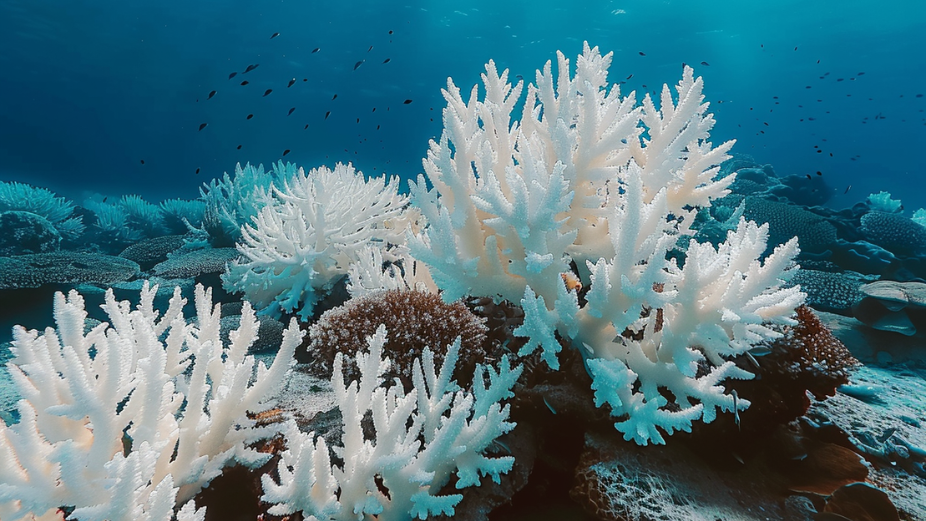Coral reefs, often referred to as the “rainforests of the sea,” are the vibrant and diverse heart of the Maldives’ marine ecosystem. But these spectacular underwater structures are facing an unprecedented threat – coral bleaching. This phenomenon, triggered by rising sea temperatures as a result of climate change, is wreaking havoc on the delicate coral systems, with severe consequences for the Maldives’ economy.
The Tourism Magnet
The Maldives is world-renowned for its pristine beaches, turquoise lagoons, and luxurious resorts, intrinsically linked to the health of its coral reefs. Tourism is the backbone of the Maldivian economy, directly contributing to approximately one-third of the nation’s GDP. Healthy coral reefs teeming with marine life are the key attraction for snorkelling and diving enthusiasts, forming the foundation of the nation’s lucrative tourism industry.
Coral bleaching events, such as the severe one in 2016 and the current crisis, lead to the degradation and potential death of corals. This transforms once-vibrant reefs into lifeless, white expanses, drastically reducing their appeal to tourists. Studies like Economic Costs and Benefits of Climate Change Impacts and Adaptation to the Maldives Tourism Industry highlight that climate change-induced tourism decline could cause losses of over 30% of tourism revenue by the end of the century.
Fisheries Under Fire
The Maldives’ fisheries sector is the second-largest economic contributor and a vital source of food security. Coral reefs act as nurseries and habitats for a myriad of fish species, and their decline directly disrupts fish populations. Bleaching events diminish reef-associated fish diversity and abundance, having a severe knock-on effect on the livelihoods of fishermen, local food supplies, and the nation’s export earnings.
Coastal Protection at Risk
Coral reefs aren’t just a source of beauty and economic prosperity; they serve a critical function as the Maldives’ natural defence against storm surges and coastal erosion. As coral systems weaken and die off, the nation becomes increasingly exposed to the ravages of the ocean, putting coastal infrastructure, homes, and businesses at higher risk of damage and destruction. This will necessitate costly investments in artificial sea defences and disaster recovery.
Compounding the Climate Crisis
The negative economic spiral resulting from coral bleaching can further exacerbate the climate crisis. As a nation dependent on revenues from sectors intimately linked with the environment, a decline in economic power reduces the Maldives’ capacity to invest in climate adaptation and mitigation strategies, leaving the country exposed to the escalating effects of global warming.
The Fight for Survival
The Maldives Marine Research Institute (MMRI) is actively monitoring the situation and has established channels for citizen reporting of bleaching events. There is a dire need for collaborative efforts involving the government, resorts, and civil society on several fronts:
- Reducing Local Stressors: Overfishing, pollution, and destructive coastal development have long added strain to local reefs. Curtailing these activities is essential to increase corals’ resilience to heat stress.
- Coral Restoration: Projects focused on transplanting and cultivating new coral colonies can help bolster reef regeneration over time.
- Climate Action: The Maldives must be a leading voice advocating for urgent global action to reduce greenhouse gas emissions, the root cause of rising ocean temperatures.
The Maldives’ unique vulnerability and dependence on coral reefs make it a stark illustration of the economic toll climate change can bring. Saving these underwater treasures is a race against time, requiring immediate local efforts and a concerted global commitment to addressing the climate crisis.



















